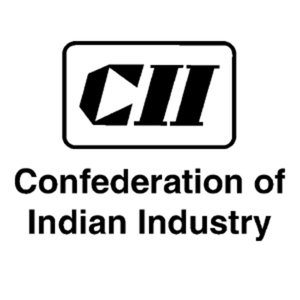The Confederation of Indian Industry (CII) recently held a seminar with Japanese/Indian local automobile & ancillary manufacturers & suppliers. The seminar witnessed participation from various manufacturers and businesses located in Pune and they took part in the conference on ‘Emerging Risks in Automobile Industry in India and the role of IT Compliance in Strengthening Supply Chain’.
The seminar was attended by CEOs, CTO’s, IT Managers of Japanese & Indian automobile and auto-component manufacturing companies. The businesses present at the conference and CII together discussed the importance of IT compliance which needs to be adhered by manufacturing setups in India to promote healthy and secure practices and fair business for economic development and growth of the automobile industry in India.
The Indian automobile and auto-component market has been scaling up its operation at a rapid pace over the last one decade, and many Japanese companies in the auto industry have been working with those Indian local and global partners. India is attracting global interest as an emerging export hub. As a result there is a growing demand for local manufacturing exporters that constitute the global supply chain. Thus there is a need to demonstrate compliance at all levels by the local players to capture their share in the global market.
Dr. Ganesh Natarajan, Co-Chair-CII National Committee on Intellectual Property & Vice Chairman and CEO at Zensar Technologies addressed, “IT compliance is about respecting intellectual property and conducting business in a secure and ethical manner. Thus, managing Clean IT in the supply chain is an important step to enhance a company’s competitiveness.”
There is a huge cluster of manufacturing companies in Maharashtra located in Mumbai, Pune and Aurangabad, where a Japanese industrial park will be set up in the near future. Such initiatives will drive the growth of Maharashtra as an important hub for Japanese Automobile companies. As these businesses will deal in export of auto parts, IT will play a very crucial role in promoting the businesses, and IT compliance by building ‘Clean IT’ based on genuine and legal resources has become a global trend.
At the Seminar Dr. K. Rangarajan, Head of Center for MSME Studies at the Indian Institute of Foreign Trade (IIFT) emphasized “With expected market size of USD 145 Bn by 2016, Indian Auto industry is all set to reaffirm its goliath position in global market. Where the domestic players have such a huge market to satisfy, they also have an increased competition pressure from their global counterparts many of whom come with exceptional best practices. Given the dependence of Automotive manufacturing sector on IT systems, use of genuine software and hardware will become a critical factor to recon for competitiveness. As the piracy rates of software in India is less than some of the countries competing for the US market, there lies the opportunity for the Indian exporters to move towards early compliance”.
Today, software piracy rate in India is higher as compared to Japan (*1), Indian local businesses have faced the impact of adopting illegal practices. There is a potential risk involved in trading with such companies for Japanese as well as Indian auto & ancillary players. Thus, there is an increasing concern for Indian auto industry to be ready for potential risks of loss of market share when supplying to Japanese Manufacturers.
Mr. Masaru Okumura, Director of KPMG Business Advisory, who is working for advisory in the Japanese auto industry, stressed the importance of building clean supply chains with “Clean IT” by introducing the trends of corporate responsibility for the end product manufacturers & exporters to manage the whole supply chains for realizing fair global competition as well as for preventing intellectual property infringement, bribery, and conflict mineral use. Followed by some best practice of the Japanese automobile companies to strengthen their supply chain IT compliance, he called for action to the ancillary manufacturers & suppliers to be ready for efficient response to the compliance audit.
At the end of the seminar, Ms. Gouri Thounaojam, BSA|The Software Alliance introduced Verafirm(*2), a portal site developed by BSA that helps company to manage software licenses effectively, which enables them to mitigate software non-compliance risks in their supply chains. There are about 120 companies enrolled on Verafirm in India re-instating the fact that enterprises are gradually understanding the need for compliance in a promising yet highly competitive global market.
Registered companies can differentiate themselves in the marketplace and supply chain managers who want to maximize trust and security with their suppliers to be proactive in managing their IT.
*1:Source: BSA Global Software Piracy Study 2011
*2:www.verafirm.org

